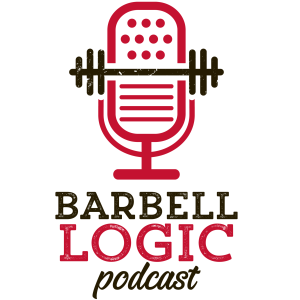
Snapping Back to Your Goldilocks Zone - Beast over Burden - #488
 2023-10-03
2023-10-03
Snapping back to your Goldilocks zone after you fall short of the actions you know will lead to your goals is a must. Whether this occurs after a vacation, a holiday, a weekend with friends or family, or simply a slow slipping of standards, this is an important skill for sustainable nutrition. Learn how to do it without overreacting.
Snapping Back to Your Goldilocks Zone - Falling ShortWhat is the Goldilocks zone? This is that golden mean where you're eating and training enough but not too much. You're looking, feeling, and performing good and are moving toward your goals.
For most people, they fall short by moving toward the vices of sloth or gluttony. Most people don't tend to train more than they should or underfeed themselves (though these people exist).
Many opportunities to turn away from the path toward your goals exist. You may go on vacation, enjoy a few too many desserts over the holiday period, indulge in too much beer during the summer, or have a long weekend with friends of family. You can likely think of more occasions.
No matter how or why you find yourself not moving toward your goals, symptoms arise. What happens to those who move away from healthy habits for too long is their senses are dulled. They essentially cannot realize that they feel bad because it's their normal state of being.
What does overindulgence look and feel like? For Andrew, it's feeling like a "turd sandwich." For Niki, it tends to result in bloat, feeling less comfortable, getting less high-quality sleep.
Let's examine what the Goldilocks zone looks and feels like.
Snapping Back to Your Goldilocks Zone - What's NormalThe Goldilocks zone feels good. The bloat goes away. You're getting good sleep, training regularly (but not overdoing it), and eating at maintenance (or at a small deficit).
Niki feels comfortable in her clothes and generally feels good. For her, it takes a couple weeks to slide back into this.
Her recommendations for how to get back on track include the following:
- Drink plenty of water
- Cut out the alcohol
- Eliminate processed foods
- Add in veggies (lots of colors & fiber)
For Andrew, it's a return to baseline. He tends to eat the same meals for breakfast, lunch, and snack. Not only does he know what he will eat but how much. He also knows which things he can adjust to reduce calories further, if needed.
For example, he can add walnuts to his yogurt, or not. He can reduce the oatmeal portion for breakfast or, potentially, even remove it.
It's takes practice, observation, and time to see if you're back on path, not doing quite enough, or, if you're overdoing it. Let's look at what overreaction looks like.
Snapping Back to Your Goldilocks Zone - Don't OverreactOverreaction for many likely comes from either a place of fear, guilt, ignorance, or some combination thereof.
You may fear the results from the recent behaviors, and instead of returning to actions you know that work, you think you have to swing the pendulum back hard.
Acting out of guilt looks similar. Because you overindulged, you feel you must almost punish yourself.
Lastly, you may simply not have a well-established baseline, so you swing the pendulum back strongly because you're not sure what else you can do.
When it comes to training, it likely looks to trying to burn yourself into a calorie deficit through cardio.
Healthy nutrition is sustainable nutrition. Effective training builds toward goals and can be done for the long haul.
Check out the Barbell Logic podcast landing page.
Get Matched with a Professional Strength Coach today for FREE!
No contract with us, just commitment to yourself: Start experiencing strength now: https://store.barbell-logic.com/match/
- Matt on Instagram
- Niki on Instagram
- Andrew on Instagram
- Barbell Logic on Instagram
- Podcast Webpage
- Barbell Logic on Facebook
- Or email podcast@barbell-logic.com
More Episodes
 2024-03-05
2024-03-05
Create your
podcast in
minutes
- Full-featured podcast site
- Unlimited storage and bandwidth
- Comprehensive podcast stats
- Distribute to Apple Podcasts, Spotify, and more
- Make money with your podcast
It is Free
- Privacy Policy
- Cookie Policy
- Terms of Use
- Consent Preferences
- Copyright © 2015-2024 Podbean.com




